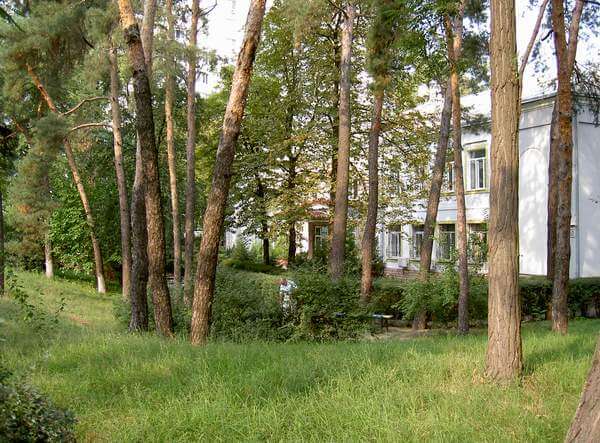Energy labelling of household appliances in Ukraine

Since April 2012, the director of Energy-Strategies, Wolfgang F. Lutz, has advised the State Agency on Energy Saving and Energy Efficiency of Ukraine with regard to the transposition of the European Energy Labelling Directive 2010/30/EU, regulations for the energy labelling of energy-related products, as well as the implementation of harmonised European measurement standards for energy-using products as Ukrainian technical standards.
These activities are part of the Twinning Project “Improvement of the Policy Framework in the Sphere of Energy Efficiency and its Approximation to the requirements of the EU Legislation”, which is carried out through a cooperation between the the State Agency on Energy Saving and Energy Efficiency (SAEE) of Ukraine, and government agencies and experts from Germany and France.
In accordance with the Energy Strategy of Ukraine until 2030, increased energy efficiency in all economic sectors is a priority of the government. Apart from improved energy efficiency in the productive sectors of the economy, energy conservation and efficiency in households is of paramount importance to achieve the nation’s objectives of energy security and sustainable economic development, which includes adequate living standards and a healthy environment for its citizens.
As far as electricity consumption is concerned, electric household appliances and lighting are the most important energy end-uses in the residential sector, which accounts for 33 TWh or 25% of the total final consumption (TFC) of electricity in the country. Also, the Ukrainian market of electric household appliances shows a stable trend of increasing sales and ownership.
Energy labelling of household appliances is considered as one of the most effective methods to increase energy efficiency in the residential sector and therefore a centrepiece of energy efficiency policies in Europe and world-wide.
Taking into consideration Ukraine’s process of approximation to the European Union, the Ukrainian government has based its national energy standards & labelling policies on the respective EU schemes and has assigned to SAEE the legal mandate to lead the process of setting up the national energy standards & labelling scheme.
Since 2002, SAEE elaborated eight national energy labelling regulations for household appliances, which are in line with the requirements of the Acquis Communautaire and have been applied on a voluntary basis. In addition, mandatory minimum energy performance standards for household refrigerators in accordance with the EC Ecodesign Regulation 643/2009 have been enacted.
Notwithstanding these important achievements, the absence of mandatory labelling requirements results in a lack of visual information on energy consumption classes and prevents consumers from making an informed choice regarding energy efficiency when purchasing domestic equipment. Consequently, the full harmonisation of the Ukrainian legal framework for energy labelling to the Aquis Communitaire – and in particular to the recent EU legislation in this field – is a priority of SAEE. This is also a requirement stemming from the Energy Community Treaty of which Ukraine is a party.
Currently, SAEE has developed – with the assistance of the Twinning Project – Draft Technical Regulations transposing the Labelling Directive 2010/30/EU, as well as the Commission Delegated Regulations for energy labelling of household refrigerating appliances (1060/2010) and household washing machines (1061/2010).
Other short-term priorities will be the transposition of the Commission Delegated Regulations for energy labelling of room air conditioners, televisions, electrical lamps and luminaires, household dishwashers and household tumble dryers. On the medium-term, further Commission Delegated Regulations for energy labelling shall be transposed, following their implementation in the EU.
A complementary activity facilitated by the Twinning Project concerns the adoption of the respective harmonised European measurement standards for energy-using products, as Ukrainian technical standards.
The transposition of Directive 2010/30/EU and of the Commission Delegated Regulations for energy labelling has to fully reflect all essential stipulations of the respective EU legal documents, and at the same time, comply with all relevant laws of Ukraine.
In order to comply with these imperatives, SAEE established a Working Group on Energy Labelling, in which all relevant government bodies and interested parties are represented. Draft Technical Regulations are discussed in the Working Group and subsequently submitted to the Ministry in charge and to the Council of Ministers for approval and adoption. Private stakeholders, in particular manufacturers and suppliers of equipment, have been informed about the forthcoming regulation in a separate forum.
So far, the strategy chosen appears to be successful and could be an interesting reference for other Central and Eastern European countries.
The services by Wolfgang F. Lutz are carried out on behalf of the ‘Mandated Institution’ of the Twinning Project, B.&S.U. Beratungs- und Service-Gesellschaft Umwelt, in cooperation with experts from the German Federal Institute for Materials Research and Testing (BAM), Department for Ecodesign and of the German Federal Ministry for the Environment, Nature Conservation and Nuclear Safety (BMU).
The Project will continue until September 2013.
February 2013
